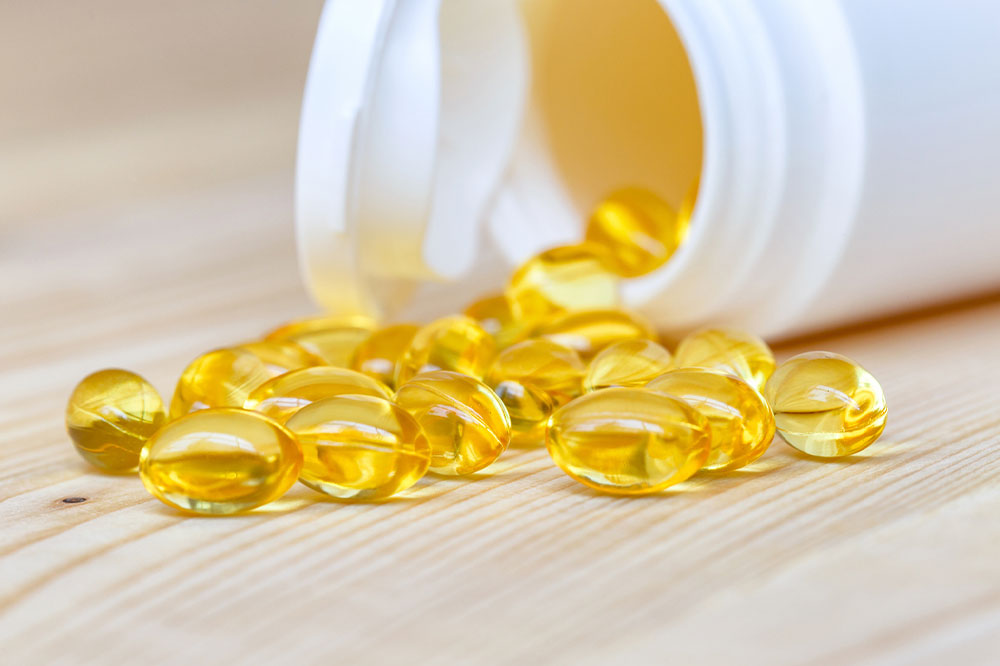9 supplements that help manage eczema

Around 15-20% of children and 1-3% of adults worldwide suffer from eczema. While this skin disease has no permanent cure, one can manage it and reduce its symptoms significantly to improve their quality of life. One helpful way to control eczema flare-ups is to use supplements like vitamins, probiotics, and minerals. Read on to learn more about this health disorder and the supplements that may aid in managing it better.
What is eczema?
Eczema, also known as atopic dermatitis, is an inflammatory skin disease that affects millions of people in the country. Its signs and symptoms include red, itchy, inflamed, and sometimes scaly patches on the skin. In most cases, one can manage the disorder with lifestyle changes, such as avoiding triggers like pollen. Stress may also need to be addressed, as it can aggravate eczema. Further, following a proper skincare regimen, including moisturizing regularly and using suitable laundry detergents, can help alleviate the symptoms.
Supplements to help manage eczema
Consulting a healthcare professional familiar with the condition is a great first step toward mitigating the discomfort caused by eczema. Depending on one’s symptoms, the doctor might recommend suitable lifestyle changes, treatments, and even supplements that could lessen the symptoms of this skin disease and help manage it:
Vitamin D
When the skin is exposed to the sun, it absorbs vitamin D, sometimes referred to as the sunshine vitamin. Several foods like milk, mushrooms, and orange juice naturally contain vitamin D. Alternate sources are vitamin D supplements. According to certain studies, vitamin D may help treat eczema or related skin diseases. A specific research study indicates that the vitamin may reduce inflammation-related indicators, which may help treat inflammatory disorders and skin diseases like eczema.
Vitamin E
Many skincare products contain vitamin E, an essential nutrient for the body. A powerful antioxidant, vitamin E can increase collagen levels in the skin, helping reduce the signs of eczema and preventing flares. Additionally, vitamin E assists in maintaining cell membrane health and protecting the skin from further damage caused by free radicals (unstable atoms that may lead to skin aging). For those who suffer from eczema or related skin diseases, these benefits associated with supplemental vitamin E make it an ideal treatment choice to combat inflammation and discomfort while bringing relief to dry, cracked skin. In a four-month trial, participants who received 400 IU (international unit) of vitamin E daily showed significant improvements in the severity of their eczema and its accompanying symptoms, such as itching.
Fish oil
Fish oil is becoming an increasingly popular home remedy for treating skin diseases like eczema. Studies have found that fish oil can effectively treat depressive symptoms, inflammation, and other associated issues when used alongside traditional treatments. Its health benefits include improving the levels of essential fatty acids that can effectively reduce skin dryness and irritation caused by eczema. Moreover, omega-3s in fish oil help keep the skin hydrated while improving its elasticity, providing much-needed relief from itching sensations. With fewer side effects than the standard treatment, fish oil could be a great starting point for anyone looking for an alternative solution to their skin problem.
Zinc
Zinc plays a crucial role in maintaining healthy skin. It helps regulate how the body produces skin cells and responds to infections that can cause an eczema flare-up. It also helps the body heal and regenerate new skin after eczema episodes. Further, research has pointed to zinc’s potential antioxidant and anti-inflammatory properties that may address dry, itchy skin. Therefore, zinc supplements are great for soothing an eczema rash and reducing skin disease intensity.
Melatonin
Melatonin is an essential component to alleviate eczema. While the body naturally produces melatonin, acquiring it through external sources can be beneficial in case of a deficiency. Numerous studies have shown that melatonin can reduce the inflammation associated with eczema and improve other symptoms like itching and redness. Scientists also believe that melatonin may increase nutrient absorption and protect the skin from damage due to sun exposure. In a particular study , using melatonin supplements daily for four weeks led to better sleep quality and less severe eczema. Interestingly, another research linked worsening dermatitis in children to less melatonin secreted and sleep disruptions.
Probiotics
Probiotics are helpful microorganisms with many positive health effects. They may help lessen eczema symptoms like itching or dryness. Research shows a positive connection between probiotics and less severe eczema in children and adults. A particular study pointed out that babies who received probiotics had a lower risk of developing eczema.
Topical vitamin B12
Vitamin B12 is essential for healthy cell division and a healthy immune system. It also helps reduce inflammation and redness, two primary symptoms of eczema. Further, vitamin B12 improves cellular communication, which can contribute to improved mental health.
Selenium
Selenium is a natural element known to help with the symptoms of skin diseases like eczema. When coupled with vitamin E, it works as a powerful antioxidant. The antioxidant activity helps repair damaged tissue and heal wounds faster. While selenium may be used as a supplement, it also can be applied directly to the skin in the form of creams and ointments prescribed by a doctor.
Turmeric
Ayurveda and traditional Chinese healthcare frequently use turmeric, both topically and orally. It is a great treatment for skin diseases like eczema due to its anti-inflammatory, anti-pain, anti-bacterial, and wound-healing properties. The spice’s primary active ingredient, curcumin, a powerful micronutrient that also lends the spice its unique color, gives it its health properties.
While skin diseases like eczema might be irritating, several nutrients and supplements help patients feel better. Remember that a healthy, balanced meal plan provides most nutrients listed above, and one must consult a doctor before using any supplements. It helps identify the best course of treatment.







